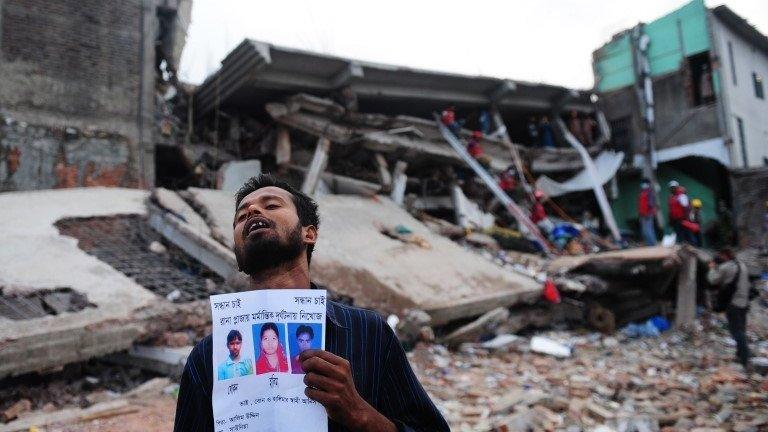Rana Plaza factory collapse survivors struggle one year on
- Published
When the Rana Plaza factory building collapsed in the Bangladesh capital, Dhaka, last year, more than 1,130 garment workers were killed, crushed under eight stories of concrete.
More than 2,500 people were rescued from the building alive, but some suffered terrible injuries. Here are some of their stories.

Mossammat Rebecca Khatun
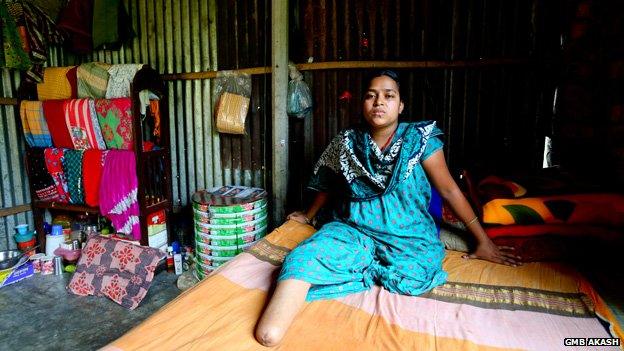
It has been a sleepless year spent in constant pain. Mossammat Rebecca Khatun was stuck under the rubble for two days after the Rana Plaza collapsed.
She lost a foot and a leg. She also lost five family members, including her mother.
"On the day of the incident my mother came up to me and said 'Rebecca you haven't had breakfast. Let us eat something before we start working'. She went to get some food. And that was the last I saw her. The building collapsed within a few minutes.
"One beam fell on my legs and I was trapped. It was pitch black and there was no air. I cried for my mother but all I could hear were the cries of my colleagues. Several dead bodies were lying around me.
"I spent two days under the rubble craving water. I did not know when it was day or when it was night. It was all the same to me under the rubble. And they never found my mother's body."
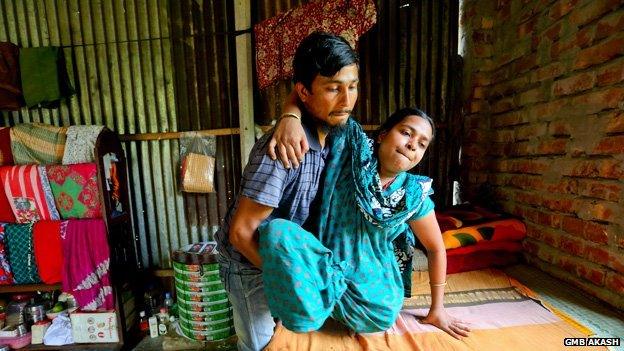
Sitting on the floor of her tin hut - like a baking oven in the summer heat - she says that after eight operations she is still unable to use her prosthetic limbs because they feel too heavy.
Her husband has to carry her everywhere - including to the toilet. Nobody in her family earns any money now.
"I am stuck in this hut all day. I cannot go anywhere. What if something happens, like a fire? What if no one is around? How am I going to live now?"

Srabon Ahmed Jahangir
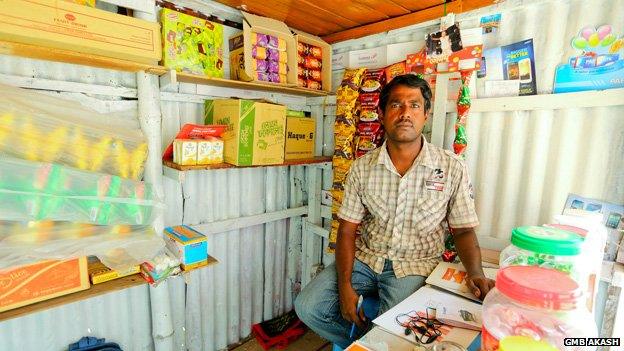
He was rescued within a few hours of the collapse, but Srabon Ahmed Jahangir has never been able to return to the garment industry.
He is trying to establish a street tea stall. His small shop stands in front of his house but there are no customers.
"I have no income so I live with my parents. I tried other jobs but I can't seem to concentrate on anything these days. My father has been carrying all my expense and my son's too.
"An NGO donated 20,000 taka [$257; £153] and this is how I am trying to establish a business. But it is not enough."
The survivors who were not injured received little help.
"I will never go back to the garment industry. The sound of the machine scares me. I become jumpy when I hear any loud noise. At the back of my mind I always have this fear: what if the building collapses again?
"I can't sleep at night because of this thought."

Sharmin Akter
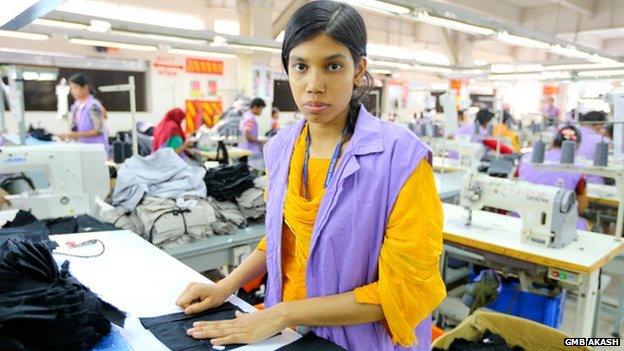
Sharmin Akter, who was a quality inspector at New Wave Styles Ltd, survived the Rana Plaza collapse - but her mother did not.
"My entire year went by looking for my mother's body or a tiny piece of evidence that will tell me what happened to her.
"I did not lose hope. I spent days going to different hospitals, government offices and the DNA lab trying to find clues.
"Then finally two months ago I learned where she was finally laid to rest. Grave number 173 in Zurain graveyard. That is the only thing I know about my mother now."
Ms Akter still had to go back to her old profession.
"I never wanted to return to this work. But I don't know anything else. The first day I returned to work, the deafening noise of the sewing machines made me so scared that I wanted to leave right away.
"The other night I dreamt that this factory also collapsed. Sometimes I wonder whether I would live if this factory also collapsed.
"God saved me once. How many times do you think God would save me?"

Selim Reza
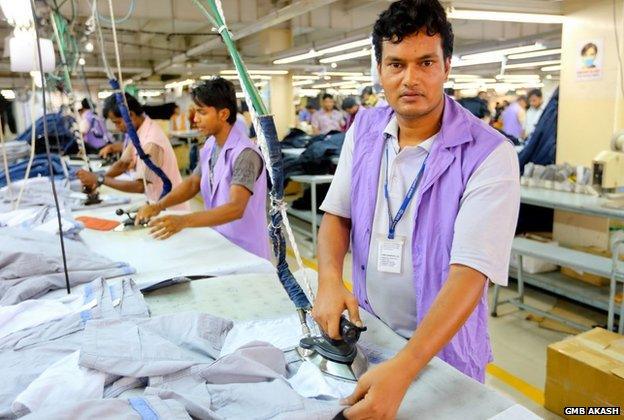
Selim Reza now has a new job ironing clothes in another garment factory, which the owners did not want to be named. He says on the day of the disaster he was afraid like many others and did not want to go up to his floor of the building to work.
"But they threatened all of us. They beat some of us and told us there is nothing to worry about. Nothing will happen. It is just a simple crack."
He spent eight hours under the rubble. After receiving medical treatment he left for his village. He stayed there almost for nine months and started his new job three months ago.
"I did not want to return but who is going to feed my family? I tried learning driving so that I can work as a professional driver but I did not get any job. So finally I had to return. I thought if others are working so can I. But I am still very much afraid."
- Published24 October 2013
